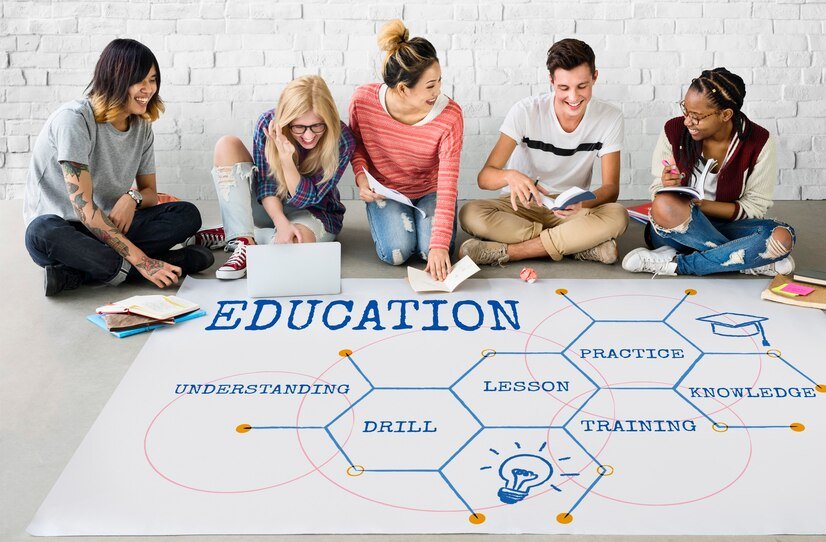Introduction
In today’s competitive world, having a well-structured student education plan is more crucial than ever. A student education plan is a roadmap that guides students through their academic journey, helping them achieve their goals efficiently. Whether you’re a high school student preparing for college or a college student aiming to excel in your studies, having a clear education plan can make a significant difference in your academic success. This guide will delve into the essentials of creating an effective student education plan, discuss its benefits, and provide tips on how to tailor it to your specific needs.
Why a Student Education Plan is Essential
A student education plan is not just a schedule or a list of goals; it’s a strategic approach to achieving academic excellence. Here’s why having a well-thought-out plan is essential:
- Clarity and Focus: A student education plan helps you clarify your academic and career goals, providing a clear focus for your studies.
- Efficient Time Management: By outlining your goals and deadlines, a student education plan ensures you manage your time effectively, balancing studies, extracurricular activities, and personal life.
- Improved Performance: With a structured plan, you can identify areas that need improvement and take proactive steps to address them, leading to better academic performance.
- Motivation and Accountability: A student education plan keeps you motivated and accountable for your progress, helping you stay on track and achieve your goals.
Components of an Effective Student Education Plan
Creating a comprehensive student education plan involves several key components:
- Academic Goals: Define your short-term and long-term academic goals. These could include specific grades, skills to acquire, or subjects to master.
- Course Selection: Choose the courses that align with your academic goals and interests. Ensure that your course load is manageable and supports your career aspirations.
- Study Schedule: Develop a study schedule that fits your personal routine. Allocate specific times for studying, completing assignments, and reviewing material.
- Extracurricular Activities: Include extracurricular activities that complement your academic goals. These can enhance your skills, provide networking opportunities, and contribute to personal growth.
- Resources and Support: Identify resources and support systems available to you, such as academic advisors, tutoring services, and study groups.
- Progress Tracking: Regularly assess your progress towards your goals. Adjust your plan as needed based on your performance and any changes in your academic interests.
Steps to Create Your Student Education Plan
- Assess Your Current Situation: Start by evaluating your current academic standing, interests, and career aspirations. Understanding where you are and where you want to go is crucial for developing an effective plan.
- Set Clear Goals: Establish specific, measurable, achievable, relevant, and time-bound (SMART) goals. This will help you stay focused and motivated.
- Design Your Plan: Outline the steps you need to take to achieve your goals. Include a timeline for each step and identify any resources you may need.
- Implement Your Plan: Put your plan into action by following your schedule, completing assignments, and participating in activities as outlined.
- Review and Adjust: Regularly review your progress and make adjustments as needed. Flexibility is key to adapting to any challenges or changes in your academic journey.
Benefits of a Student Education Plan
Implementing a student education plan offers numerous benefits, including:
- Enhanced Academic Performance: A structured plan helps you stay organized and focused, leading to improved grades and academic achievements.
- Reduced Stress: By managing your time effectively and setting realistic goals, you can reduce academic stress and avoid last-minute cramming.
- Better Career Preparation: A well-thought-out education plan aligns with your career goals, providing you with the skills and knowledge needed for your future profession.
- Increased Confidence: Successfully following your plan and achieving your goals boosts your confidence and prepares you for future challenges.
FAQs About Student Education Plans
- What should be included in a student education plan?
- A student education plan should include academic goals, course selection, a study schedule, extracurricular activities, resources and support, and progress tracking.
- How often should I review my student education plan?
- It’s recommended to review your student education plan at least once per semester or whenever you reach a significant milestone.
- Can I adjust my student education plan if my goals change?
- Yes, your education plan should be flexible and adaptable to changes in your goals or circumstances.
- What are some common mistakes to avoid when creating a student education plan?
- Common mistakes include setting unrealistic goals, failing to allocate sufficient time for study, neglecting extracurricular activities, and not seeking support when needed.
- How can I stay motivated to follow my student education plan?
- Stay motivated by setting achievable milestones, rewarding yourself for progress, seeking support from peers or mentors, and regularly reminding yourself of your long-term goals.
Conclusion
A student education plan is a powerful tool that can significantly impact your academic success and personal growth. By setting clear goals, managing your time effectively, and regularly assessing your progress, you can achieve your educational aspirations and prepare for a successful future. Whether you’re just starting your academic journey or looking to enhance your current plan, following the guidelines outlined in this article will help you create a comprehensive and effective student education plan. Stay focused, stay motivated, and let your plan guide you towards achieving your academic dreams.
You can see latest updates on: Zinmanga


